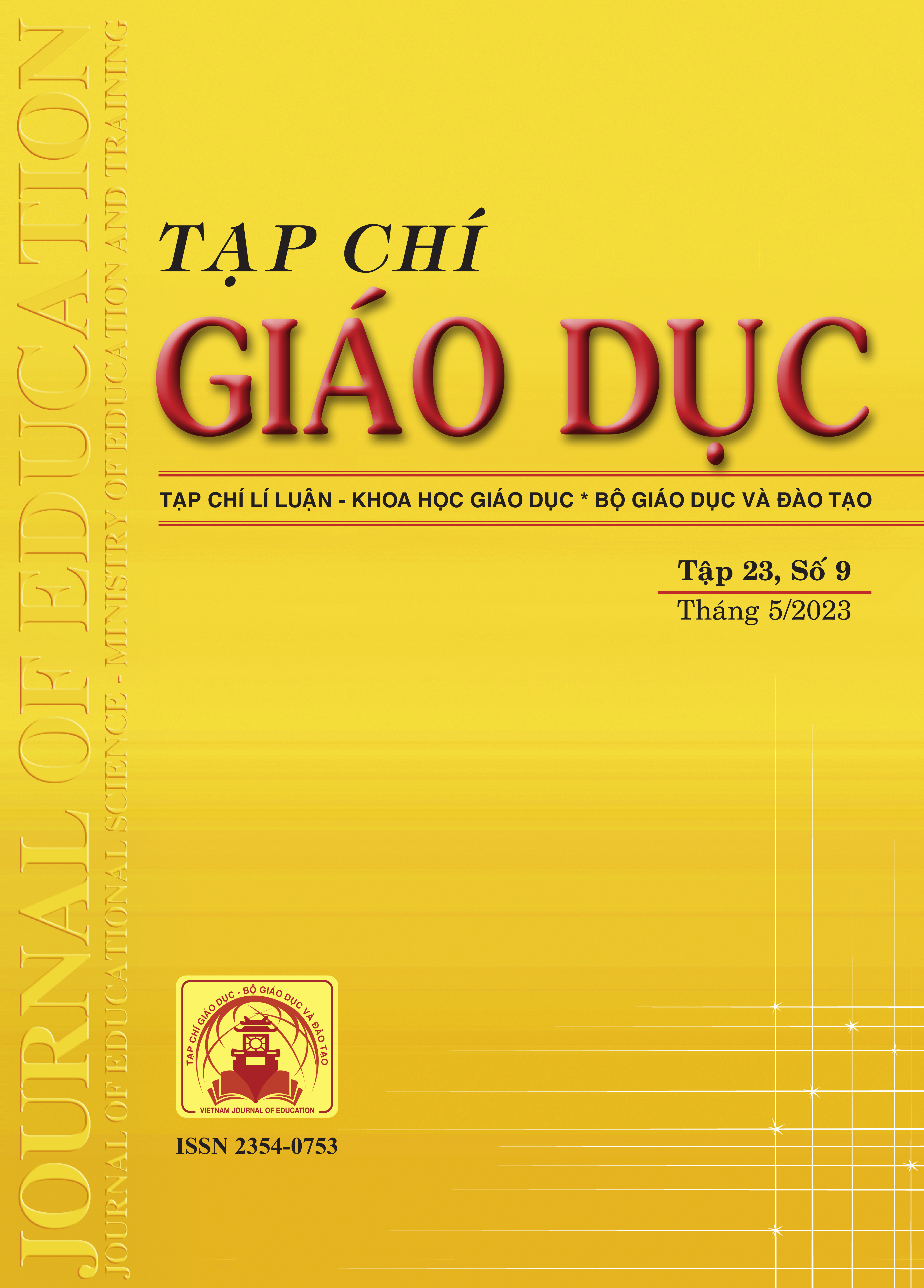Nghiên cứu các tác động của cha mẹ đến năng lực tính toán của học sinh trung học cơ sở khu vực miền núi và vùng dân tộc thiểu số phía Bắc Việt Nam
Tóm tắt
In Vietnam, there have been a number of authors who have researched and proposed solutions to develop learners’ numeracy, most of which, however, are associated with the Mathematics teaching process, that is, focusing on the role of teachers in the development of students' computing competence. This study was conducted on 279 parents of students from 8 northern mountainous provinces of Vietnam to determine the factors related to parents affecting the computing competence of junior high school students in mountainous areas and ethnic minority areas in the North of Vietnam. The results show that: parents' trust in the usefulness of Math; parents' beliefs in teachers and schools; Parents' support with their child's math learning are factors that affect students' computational capacity. Regarding future studies, the hypotheses about other influencing factors from parents, observed variables as well as the research sample would be considered to increase the reliability of the research results.
Tài liệu tham khảo
Acharya, B. R. (2017). Factors affecting difficulties in learning mathematics by mathematics learners. International Journal of Elementary Education, 6(2), 8-15.
Aunio, P., Korhonen, J., Ragpot, L., Tormanen, M., Mononen, R., & Henning, E. (2019). Multi-factorial approach to early numeracy - The effects of cognitive skills, language factors and kindergarten attendance on early numeracy performance of South African first graders. International Journal of Educational Research, 97, 65-76.
Bộ GD-ĐT (2018). Chương trình giáo dục phổ thông - Chương trình tổng thể (ban hành kèm theo Thông tư số 32/2018/TT-BGDĐT ngày 26/12/2018 của Bộ trưởng Bộ GD-ĐT).
Coben, D., O'Donoghue, J., & Fitzsimons, G. E. (Eds.) (2000). Perspectives on adults learning mathematics: research and practice. Kluwer, Dordrecht.
Cockroft, W. H. (1982). Mathematics Counts, Report of the Committee of Inguiry Into the Teaching of Mathematics in Schools. London: Her Majesty’s Stationery Office.
Considine, G., & Zappala, G. (2002). The influence of social and economic disadvantage in the academic performance of school students in Australia. Journal of Sociology, 38(2), 129-148.
Enu, J. A. O. K., Agyman, O. K., & Nkum, D. (2015). Factors influencing students’ mathematics performance in some selected colleges of education in Ghana. International Journal of Education Learning and Development, 3(3), 68-74.
Faragher, R., & Brown, R. I. (2005). Numeracy for adults with Down syndrome: It's a matter of quality of life. Journal of Intellectual Disability Research, 49(10), 761-765.
Johnston, M., Thomas, G., & Ward, J. (2009). Analysis of the number framework. Findings from the New Zealand Numeracy Development Projects, 36-48.
Kus, M. (2018). Numeracy. Brock Education Journal, 27(2), 58-62.
Marcelino, L., Sousa, O. D, & Lopes, A. (2017). Predictive relation between early numerical competencies and mathematics achievement in first grade Portuguese children. Frontiers in Psychology, 8(1103).
Melhuish, E. C., Phan, M. B., Sylva, K., Sammons, P., Siraj-Blatchford, I., & Taggart, B. (2008). Effects of the home learning environment and preschool center experience upon literacy and numeracy development in early primary school. Journal of Social Issues, 64(1), 95-114.
Missall, K., Hojnoski, R. L., Caskie, G. I., & Repasky, P. (2015). Home numeracy environments of preschoolers: Examining relations among mathematical activities, parent mathematical beliefs, and early mathematical skills. Early Education and Development, 26(3), 356-376.
OECD (2014). PISA 2012 Financial Literacy Assessment Framework.
Schwab, K. (2015). World economic forum. Global Competitiveness Report (2014-2015).
Steen, L. A. (2001). Mathematics and numeracy: Two literacies, one language. The Mathematics Educator, 6(1), 10-16.
Xiao, F., Barnard-Brak, L., Lan, W., & Burley, H. (2019). Examining problem-solving skills in technology-rich environments as related to numeracy and literacy. International Journal of Lifelong Education, 38(3), 327-338.
Tải xuống
Đã Xuất bản
Cách trích dẫn
Số
Chuyên mục
Giấy phép

Tác phẩm này được cấp phép theo Ghi nhận tác giả của Creative Commons Giấy phép quốc tế 4.0 .












